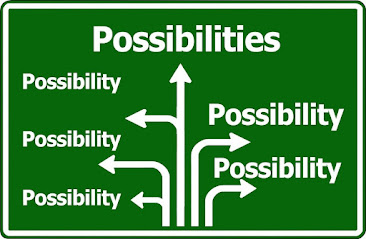The Cost of Opportunity
Breaking Bogart (07)
Welcome back to Vaughn Düm's blog this week on: Breaking Bogart.
Within this post, I will attempt to discuss decision making, how that relates to economics, and how both of these concepts relate to me and my recent experiences. In order to do so, I must provide contextual information. For a while now I have returned to seeking my degree and to one of the laboring roles within the automotive industry. (Mechanic). Seeking my degree has most recently resulted in myself learning under Professor Stegner within the setting of their economics course. The class has been discussing foundational economic concepts as the course begins to deliver its content. Among these concepts, and those relevant to this blog post, are the economic concepts of trade-offs and opportunity cost.
Over the course of the summer for the year 2024, I had made the decision to work 30 hours a week at an automotive shop while maintaining my academic obligations both for my career and for seeking my degree. Following through on that decision had a set of trade offs. Midway through summer, for a myriad of reasons not to be discussed here, I resigned from the position. The choice to leave the company of course had its own set of trade offs just as working their did. Here I will focus on the trade offs, and specifically, the opportunity cost of quitting the position.
 |
| Auto mechanic working in engine bay. |
As defined by Dirk Mateer and Lee Coppock, "Trade-offs are about having to give something up, while opportunity cost quantifies “what” or “how much” is being given up." {Mateer, Dirk; Coppock, Lee. Principles of Microeconomics (Fourth Edition) (p. 124). W. W. Norton & Company. Kindle Edition.} Due to the scarce nature of resources available to any individual, any meaningful decision (arguably any decision) results in trading one scarce resource for some form of another. For the purposes of this discussion, I will be framing opportunity cost as the most significant trade-off lost to the discussed decision making. I will also be assigning a dollar value to the opportunity cost. Although, the amount will not have any particular method or calculation behind its value. Think of the opportunity cost value to come as more of a retrospective estimation.
Alright, I will get down to business. By sacrificing, or giving up, a set of benefits that are associated with the mechanic position I was working, I made a trade-off for improving the quality of my own life. To speak immediately on the opportunity cost in a direct and quantified manner, the position I worked offered $2800 as additional income per month. This opportunity cost exists alongside more intangible, or less easily measurable benefits. Such benefits include the development of industry connections and relationships, honing of my hands-on and technical skills, and a work schedule that encourages myself to rigidly remain productive. (Whether or not that level of productivity is better for myself in the long run or not will not be discussed here). To be clear, there are any number of factors to be traded off when making a decision such as leaving a company, but I am focusing on the income loss as it is the most impactful trade off. Therefore I am treating it as the opportunity cost of leaving the company.
 |
| Credit: Geralt, Pixabay |
I left or relinquished the income opportunity for improvement in the quality of my life and how I am capable of applying my time. As Tesa Stegner expresses this concept, "We know that individuals have two resources at their disposal -- time and money." Essentially, my trade off for this decision was the sacrifice of money for another extremely scarce "resource": time, and the quality and flexibility in application of said time. In total, I likely gave up an additional five thousand dollars of income before my instructional responsibilities would have again taken precedence. I justify this loss by considering how important the pursuit of my own education is to me. This truth alongside my yearning to feel okay physically and mentally was far and beyond worth the financial trade-off.
As I reflect on my resignation, I am instilled with a firm confidence that my decision was the better one. Despite this, I am struck with the reality that every opportunity is accompanied by its own set of costs. Attempts to avoid this blunt reality and truthful trade-off results in a degradation of the self. In this example, in an attempt to maintain the usage of my time while also earning an income through my associated industry, I strained my quality of life in quite the excessive manner. I now firmly believe more than ever that there lies minimal value in social and financial credit when one is unable to live with their inner self.
 |
| Property of Oscar Vaughn Hill CC BY-NC |


Comments
Post a Comment